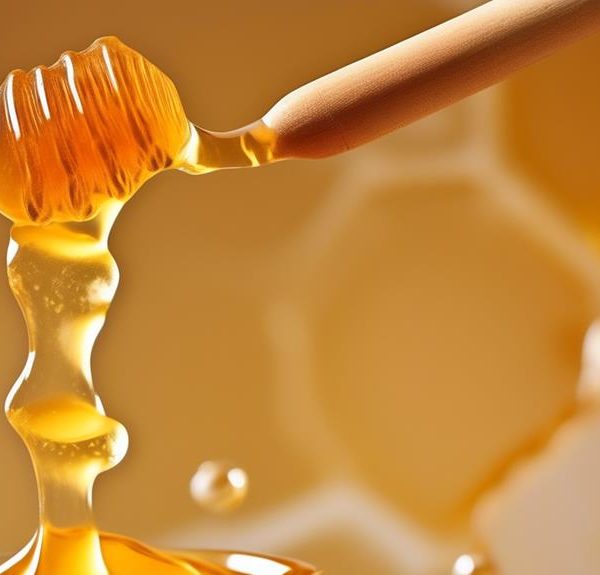Navigate the nutritional maze of honey to discover if this sweet nectar hides a treasure trove of vitamins within its golden drops.
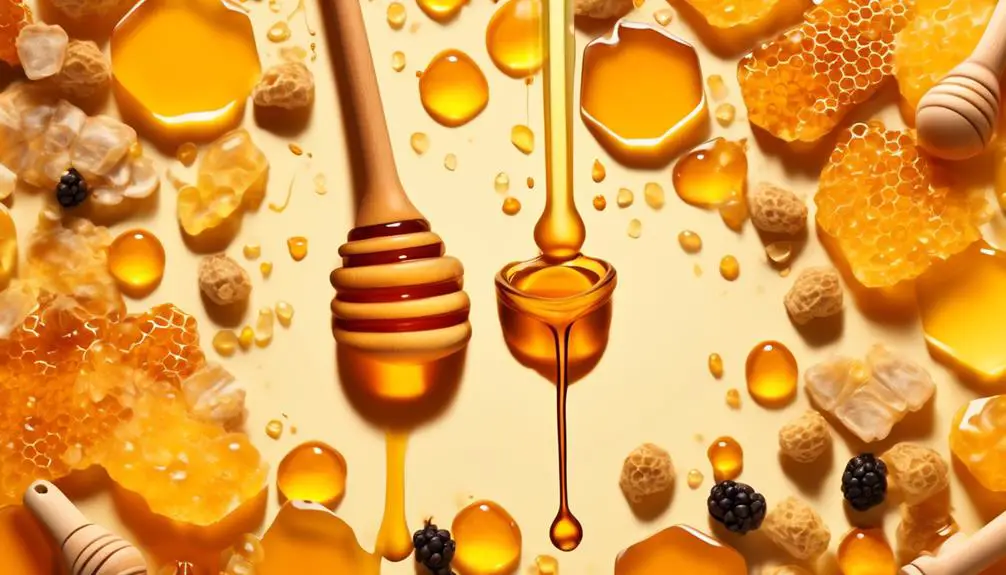
Are There Vitamins in Honey
Honey, often considered liquid gold, is not just a sweet delight, but also a powerhouse of numerous nutrients. You've likely savored its natural sweetness without giving much thought to its nutritional profile.
However, the question arises – does honey contain vitamins? The answer isn't as simple as it seems. To unlock the secrets of this golden nectar, one needs to explore its nutritional makeup.
Are you ready to venture on this intriguing journey of discovery about the vitamin content of honey?
Key Takeaways
- Honey is a rich source of essential B-complex vitamins such as niacin, riboflavin, pantothenic acid, and thiamin.
- The presence of vitamins like B6, thiamin, niacin, and riboflavin in honey plays crucial roles in energy production, brain function, and cell metabolism.
- Honey contains trace amounts of Vitamin C, acting as an antioxidant that helps maintain the immune system, promotes wound healing, and aids iron absorption.
- The B-vitamin complex in honey, including niacin, riboflavin, pantothenic acid, and folic acid, is crucial for energy production, growth, nervous system support, and red blood cell formation.
Understanding Honey's Nutritional Profile
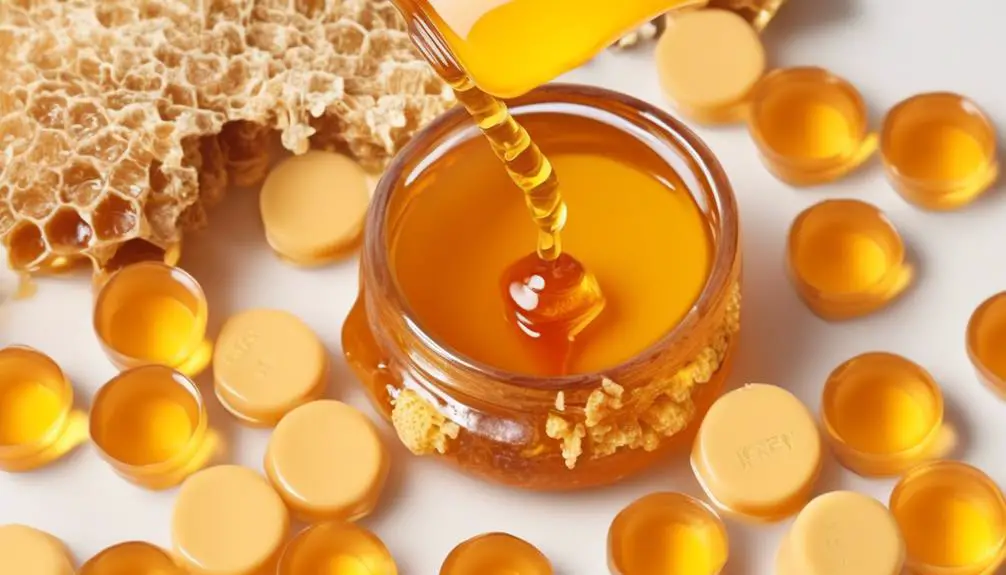
While you may primarily think of honey as a sweetener, it's important to understand that it also offers a wide range of essential vitamins and minerals, enriching its nutritional profile significantly. Honey's vitamin content includes a variety of B-complex vitamins, such as niacin, riboflavin, pantothenic acid, and thiamin. These vitamins play vital roles in energy production, red blood cell synthesis, and skin maintenance.
Additionally, honey provides essential minerals like calcium, copper, iron, magnesium, manganese, phosphorus, potassium, and zinc. These minerals are crucial for bone health, blood clotting, immune function, nerve impulse transmission, and regulation of heart rhythm, among other bodily functions.
Moreover, you'll find antioxidants in honey, such as flavonoids and phenolic acids, which help neutralize harmful free radicals in the body, thereby reducing the risk of chronic diseases. In particular, darker honey varieties, like buckwheat honey, are rich in these beneficial compounds.
Vitamins Present in Honey
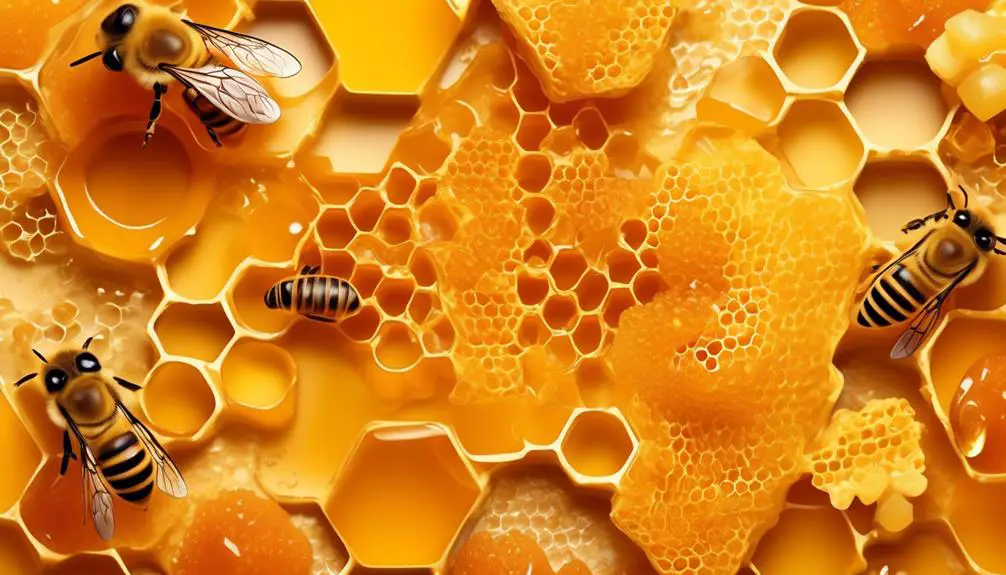
You'll be surprised to learn that honey, beyond its sweet taste, is a rich source of several essential vitamins that contribute positively to your overall health. This golden liquid is packed with vitamins like B6, thiamin, niacin, and riboflavin- all part of the B-complex vitamins. These vitamins play a significant role in energy production, brain function, and cell metabolism.
Let's take a detailed look at the three key vitamins in honey:
Vitamin | Role | Honey's Contribution |
|---|---|---|
Vitamin B6 | Involved in protein metabolism and brain development | Provides 0.024 mg per 100 gm |
Thiamin (B1) | Assists in energy production and cognitive functions | Supplies around 0.006 mg per 100 gm |
Niacin (B3) | Enhances skin health, nerve function, and digestion | Offers approximately 0.121 mg per 100 gm |
While the vitamin content in honey may not be as high as in some fruits and vegetables, it is still a valuable addition to your diet. It's a natural sweetener that not only enhances the flavor of your food but also boosts your health. So, next time you reach for a sweetener, consider honey for its vitamin content.
Honey and Vitamin C: The Connection
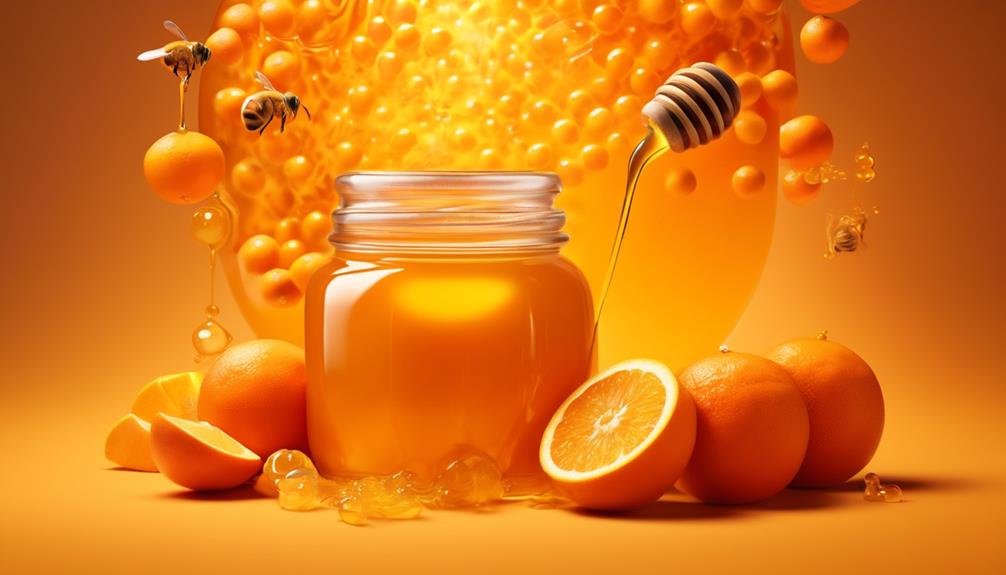
Moving beyond the B-complex vitamins, let's explore another essential nutrient found in honey – Vitamin C, and understand its significance to your health. Although honey isn't a significant source of Vitamin C, it's present in trace amounts. This humble substance is renowned for its antioxidant properties, which help protect your body against harmful free radicals.
Vitamin C plays a crucial role in maintaining your immune system, promoting wound healing, and aiding in the absorption of iron. A deficiency can lead to a variety of health problems, including a weakened immune system, slow wound healing, and iron deficiency anemia.
Although the quantity of Vitamin C in honey is small, it's still a contributor to your overall intake. Consuming honey can subtly supplement your Vitamin C levels, especially if your diet is lacking. However, it's important to remember that honey shouldn't replace fruits, vegetables, and other foods rich in Vitamin C.
Honey's B-Vitamin Complex
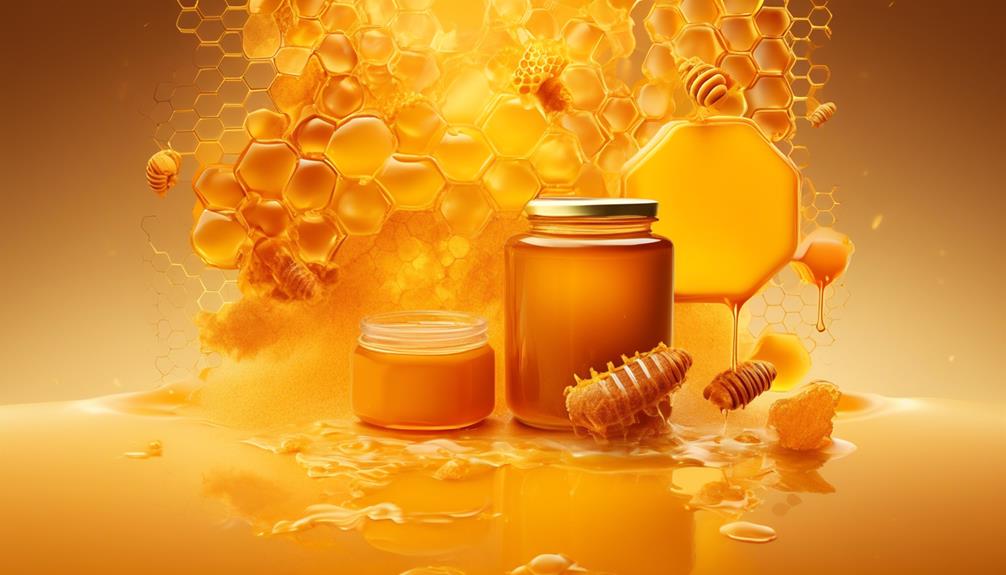
Delving into the heart of honey's nutritional profile, we find a complex of B vitamins that play pivotal roles in maintaining optimal health. B vitamins are crucial for energy production, brain function, and cell metabolism. They're often referred to as the 'building blocks' of the body, and honey is a natural source of these essential nutrients.
In honey, you'll find B vitamins like niacin (B3), riboflavin (B2), pantothenic acid (B5), and even traces of folic acid (B9). Niacin helps your body convert food into energy and is vital for the healthy functioning of your nervous system. Riboflavin is critical for growth and overall good health. It helps the body break down carbohydrates, proteins, and fats to produce energy, and it allows oxygen to be used by the body.
Pantothenic acid, on the other hand, is essential for the synthesis of coenzyme A (CoA), an enzyme that participates in various metabolic pathways. Lastly, folic acid is key in forming red blood cells, thus preventing anemia.
Role of Honey's Vitamins in Health
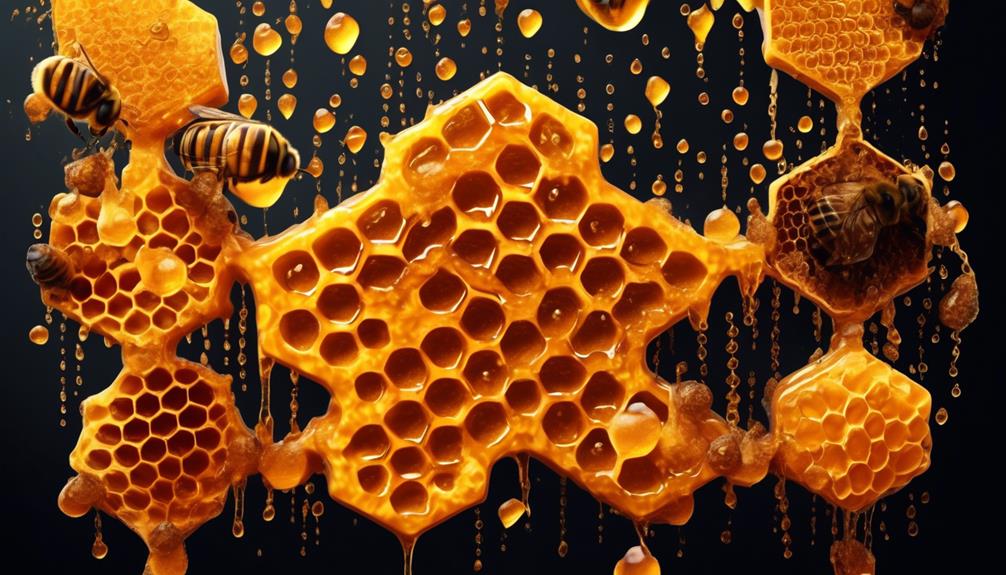
Understanding the role of honey's vitamins in health can help you appreciate the true value of this sweet, natural substance in your diet. Honey is rich in a variety of vitamins, each having a unique effect on your body's health.
A table below shows some vitamins found in honey, their roles, and associated health benefits:
Vitamin | Role in Body | Health Benefit |
|---|---|---|
Vitamin C | Antioxidant, boosts immune system | Helps in wound healing, prevents cell damage |
Vitamin B6 | Metabolism of proteins, fats, and carbohydrates | Aids in brain development and function |
Niacin (B3) | Energy production, cholesterol control | Supports nervous system, aids in digestion |
Riboflavin (B2) | Energy production, cell function and growth | Maintains healthy eyes, skin, and hair |
The presence of these vitamins in honey contributes significantly to your health. For instance, Vitamin C boosts your immune system and aids in wound healing. Vitamin B6 supports brain development and function, while Niacin helps in digestion and supports your nervous system. Riboflavin is essential for healthy eyes, skin, and hair. So, including honey in your diet provides you with these vital vitamins which are crucial for your overall health.
Conclusion
So, you've seen that honey isn't just a sweet treat. Yes, it's loaded with vitamins, particularly Vitamin C and B-complex vitamins. These nutrients play crucial roles in your health, contributing to a robust immune system, energy production, and overall well-being.
Remember, though, moderation is key. Honey is still a sugar, and too much can lead to health issues. So, enjoy your honey, but always in balance with a healthy diet.

